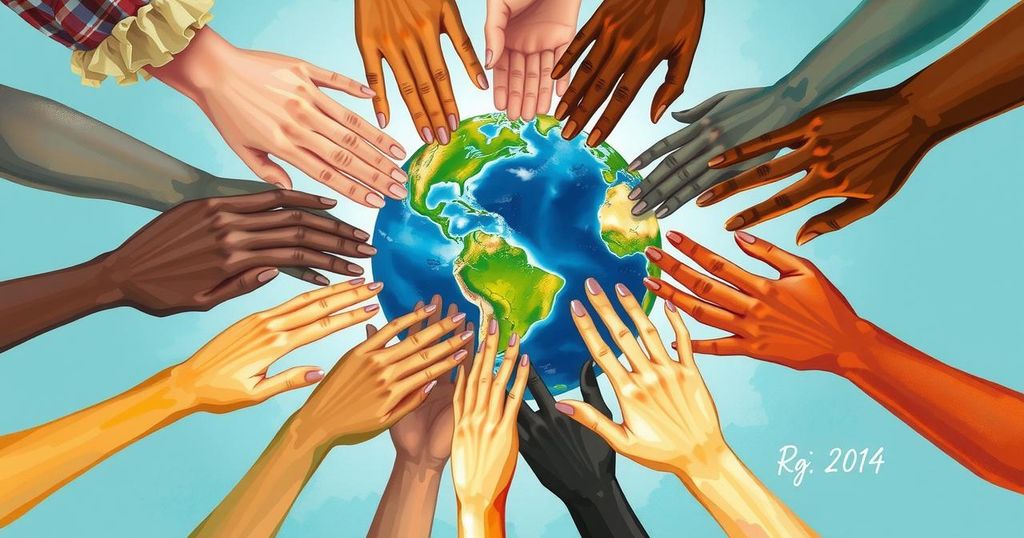Multilateralism is vital for addressing climate change and inequality. The year 2025 will be crucial, with major conferences like FfD4, COP30, and the G20 Summit aimed at fostering collaboration and sustainable solutions. Reforming global finance and ensuring equitable climate action are top priorities.
Multilateralism is essential to address global issues like climate change and inequality. The year 2025 presents a critical opportunity for decisive multilateral action, especially given the challenges of increasing inequalities, climate threats, and financing gaps for sustainable development. A collaborative approach is required, rather than regressing into isolationist strategies.
Three key meetings in 2025 are significant for advancing multilateralism: the Fourth International Conference on Financing for Development (FfD4) in Seville, the 30th Conference of the Parties (COP30) in Belém, and the G20 Summit in Johannesburg. These gatherings must produce tangible outcomes, moving beyond typical agendas to create a more just and sustainable world.
Trust in multilateral institutions faces challenges, yet the need for enhanced dialogue and cooperation is urgent. Ambitious and action-oriented multilateralism is the best method to confront shared global challenges. Building on achievements like the 2030 Agenda and the Paris Agreement, the upcoming conferences must focus on inclusivity and shared prosperity, necessitating strong political commitment and the involvement of diverse stakeholders.
Income inequality continues to rise globally, affecting both developed and developing nations. Many developing countries face significant debt burdens and limited access to capital, placing essential services at risk. Reforming the global financial architecture is imperative to give a stronger voice to the Global South, ensuring equitable access to resources, and initiating debt relief initiatives.
The FfD4 in Seville represents a crucial opportunity to enhance international financial cooperation, emphasizing better taxation and improved domestic resource mobilization. Additionally, the G20 under South African leadership is prioritizing innovative financing and addressing high capital costs for developing countries.
Climate transitions must be equitable, yet many developing nations lack the necessary financing. COP30 in Belém must facilitate the translation of climate finance commitments into actionable projects. Success hinges on new ambitious Nationally Determined Contributions (NDCs) and reliable financing to meet the $1.3 trillion annual requirement for climate action by 2025.
To combat fragmentation, Seville, Belém, and Johannesburg should exemplify multilateral cooperation. Financial mobilization for sustainable development must intertwine with climate action, and efforts at these conferences should reinforce the value of inclusive economic growth. All nations, institutions, the private sector, and civil society must rise to this challenge — multilateralism’s effectiveness is crucial, and failure is not an option.
The article emphasizes the critical role of multilateralism in addressing pressing global issues, particularly in the context of upcoming major conferences in 2025. It stresses the need for collective action, incorporation of diverse perspectives, and reform of global financial structures to combat inequality and enhance climate action. A unified approach in these meetings is essential to ensure tangible progress towards sustainable development.
Original Source: www.aljazeera.com






